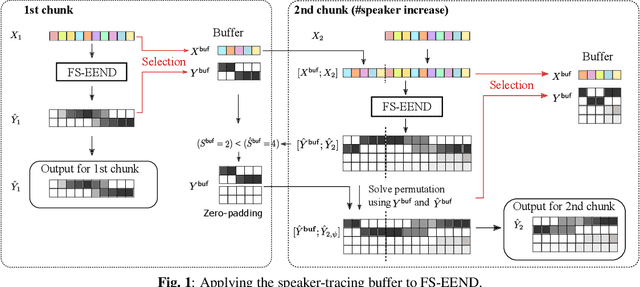Online End-to-End Neural Diarization Handling Overlapping Speech and Flexible Numbers of Speakers
Paper and Code
Jan 21, 2021



This paper proposes an online end-to-end diarization that can handle overlapping speech and flexible numbers of speakers. The end-to-end neural speaker diarization (EEND) model has already achieved significant improvement when compared with conventional clustering-based methods. However, the original EEND has two limitations: i) EEND does not perform well in online scenarios; ii) the number of speakers must be fixed in advance. This paper solves both problems by applying a modified extension of the speaker-tracing buffer method that deals with variable numbers of speakers. Experiments on CALLHOME and DIHARD II datasets show that the proposed online method achieves comparable performance to the offline EEND method. Compared with the state-of-the-art online method based on a fully supervised approach (UIS-RNN), the proposed method shows better performance on the DIHARD II dataset.
 Add to Chrome
Add to Chrome Add to Firefox
Add to Firefox Add to Edge
Add to Edge